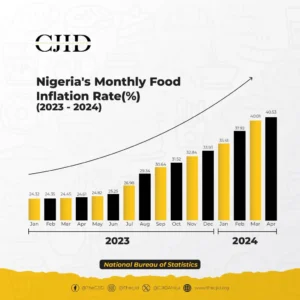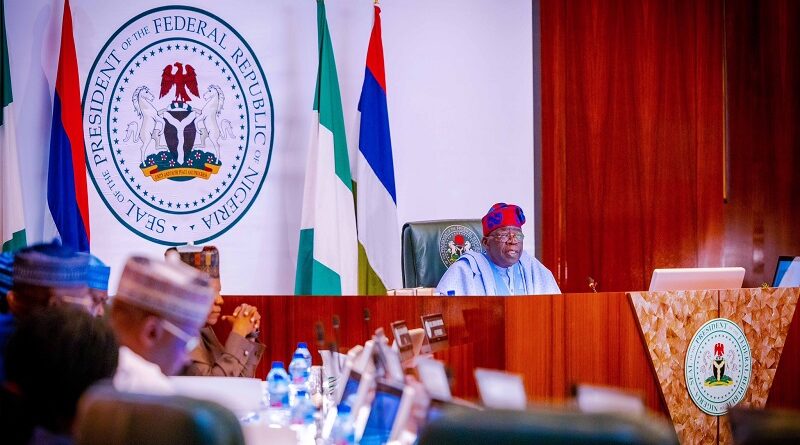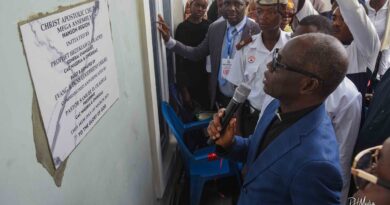World Food Day: FG Reaffirms Commitment To Tackling Hunger
As Nigeria joined other nations in celebrating World Food Day 2024, the Federal Government announced yesterday that it is taking all necessary steps to address hunger in the country.
The Minister of State for Agriculture and Food Security, Dr Aliyu Abdullahi, made this statement during a ministerial briefing to mark the occasion, themed “The Right to Food for a Better Life and a Better Future.” Abdullahi noted that the sector has made significant progress, thanks to the Federal Government’s policy initiatives and innovative funding strategies.
He highlighted that in 2017 Nigeria made significant strides in the global agricultural sector, ranking first in cassava and yam production, with outputs of 59.4 million tonnes and 47.9 million tonnes, respectively.
He also mentioned that Nigeria ranked 14th in maize production, with 10.42 million tonnes, and 4th in palm oil production, with 7.7 million tonnes that same year. Additionally, in 2019, Nigeria became the largest rice producer in Africa, achieving a production level of 9 million metric tonnes.

The minister stated, “This year, the Nigerian government has ordered the immediate release of more than 102,000 metric tonnes of maize, millet, and garri, in addition to other food commodities from the national food reserve to Nigerians, as a temporary response to the nation’s rising cost of food.
“The administration has also resorted to importing some food commodities as an interim measure to augment food shortages. During the national broadcast on Nigeria’s 64th independence anniversary, President Bola Tinubu emphasised commitment to reducing food costs and increasing food production.
“The government is prioritising mechanised farming to accelerate agricultural production and promote economic growth.
“This administration has outlined plans to cultivate 500,000 hectares of farmlands across the country to grow maize, rice, wheat, millet, and other staple crops to boost food supply and affordability. The strategy involves collaboration with state governments to stem inflation and enhance food security in the country.
RELATED: World Bank Urges Nigeria to Commit to Economic Reforms
“Economic opportunities are being enhanced for inclusive participation of small and marginal farmers, women, and youths to create jobs, reduce poverty, and boost economic growth.
“It is the resolve of the present administration to develop the agricultural sector towards the attainment of the objectives of Sustainable Development Goals, SDGs, especially those of zero hunger and to improve agriculture and rural productivity.”
He continued by proudly stating that Nigeria makes a substantial contribution to the overall food supply in West Africa.
“Accordingly, the Federal Government is committed to building productive and sustainable partnerships with international development partners to upscale interventions in numerous agricultural value chains to prevent further deterioration in food security conditions in the country and beyond.“
Nigeria’s food loss stands at 855,629 MT (FAO).
Further, Mr Salisu Mohammed, the assistant country representative of the Food and Agriculture Organisation, FAO, also stated
“The March 2024 Cadre Harmonise protected 31.8 million people in Nigeria at risk of food insecurity, and just recently, the country was hit by yet another devastating flood. I think the one in Kogi is the one happening recently.
“Across Nigeria, an estimated food loss is about 855,629 metric tonnes, which is equivalent to the amount of food that could feed 8.5 million people for six months. Nigeria will face adversities again but there are solutions if we work together.
He advised the Federal Ministry of Agriculture and Food Security to create a conducive environment for food production.
Also, Mr. Ibrahim Kabir, the National President of the All Farmers Association of Nigeria (AFAN), urged the government to provide incentives and support to farmers to promote advanced farming practices in Nigeria.
He said, “The inclusivity of the smallholder farmers will reinvigorate the food system, despite the challenges of insecurity, climate change, and other impediments.”
Content Credit| Igabkuma Rita Doom
Picture Credit | https://dailytrust.com/where-is-the-federal-government/
https://thecjid.org/the-hunger-crisis-in-nigeria-a-deepening-challenge/




